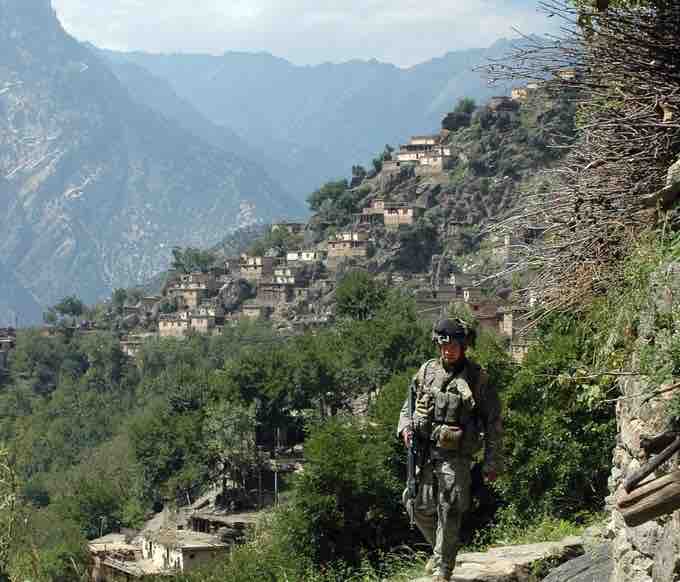The relationship between the United States and Afghanistan has become an integral aspect of U.S. foreign policy.
Following the attacks of September 11, 2001-- thought to be orchestrated by Osama bin Laden, who was residing in Afghanistan under asylum at the time-- the United States launched and led Operation Enduring Freedom. This major military operation was aimed at removing the Taliban government from power and capturing Al-Qaeda members, including Osama bin Laden himself. Following the overthrow of the Taliban, the U.S. supported the new government of Afghan President Hamid Karzai by maintaining a high level of troops in the area, as well as by combating Taliban insurgency. Afghanistan and the United States resumed diplomatic ties in late 2001.
The United States has taken a leading role in the overall reconstruction of Afghanistan by investing billions of dollars in national roads, government and educational institutions, and the Afghan military and national police force. In 2005, the United States and Afghanistan signed a strategic partnership agreement, committing both nations to a long-term relationship.
The U.S. Armed Forces has been gradually increasing its troop level in Afghanistan since 2002, reaching about 100,000 in 2010. They are scheduled to begin leaving between mid-2011 to the end of 2014. In 2012, Presidents Obama and Karzai signed a strategic partnership agreement between their respective countries, designating Afghanistan as a major non-NATO ally. Concerns remain regarding the Taliban insurgency, the role of Pakistan in training those insurgents, the drug trade, the effectiveness of Afghan security forces, and the risk of Afghanistan degenerating into a failed state after the withdrawal.

Operation Enduring Freedom
An American soldier on patrol in Afghanistan